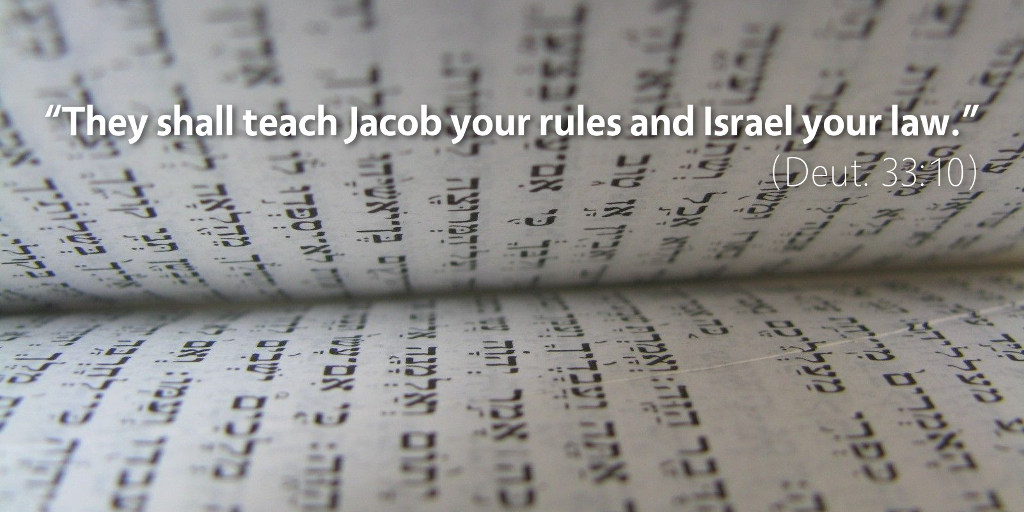Bible Readings for June 28th
Deuteronomy 33–34 | Psalm 119:145–176 | Isaiah 60 | Matthew 8
The shadow of Moses’s impending death hangs over the entire book of Deuteronomy. But, as the people move on into the Promised Land after the death of Moses (which we finally read about here in Deuteronomy 34), it will not only be Joshua who will lead the people. Additionally, the priests and the Levites will also begin to take a more prominent role in the spiritual leadership of Israel. Therefore, in Deuteronomy 33:8–11, Moses lays out the three primary duties that the tribe of Levi will take up.1
First, the chief duty of the priests and the Levites would be to teach the law to the rest of Israel: “They shall teach Jacob your rules and Israel your law” (Deut. 33:10). Where Moses had played the role of lawgiver and chief teacher in Israel, it becomes the responsibility of the Levites to ensure that the entire nation knows and understands Yahweh’s law as Moses goes to his death.
One of the greatest fulfillments of this responsibility comes in Nehemiah 8, where we see the priest Ezra reading from the Book of the Law to the people of Israel, while the Levites “helped the people to understand the Law, while the people remained in their places. They read from the book, from the Law of God, clearly, and they gave the sense, so that the people understood the reading” (Neh. 8:7–8).
Second, the priests were called to intercessory prayer for Israel. To get at this idea, Moses says, “they shall put incense before you” (Deut. 33:10). The smoke of the incense symbolized the priests’ prayers ascending as a pleasing aroma to Yahweh. In Revelation 5:8, this becomes explicit. There, we see the four living creatures and the twenty-four elders falling down before the Lamb, “each holding a harp, and golden bowls full of incense, which are the prayers of the saints.”
Third, the priests were called to make atoning sacrifices on behalf of the people: “they shall put…whole burnt offerings on your altar” (Deut. 33:10). Without atonement, the people of Israel could not retain their standing before Yahweh. The burnt offerings had to die—the lives of the bulls, goats, and lambs in exchange for the lives of Israelites—and it was the sole responsibility of the priests to offer those sacrifices.
In the new covenant, we have only one high priest, the Lord Jesus Christ (Heb. 8:1–6), but all of us are called to be a holy priesthood as we minister to one another and worship the Lord (1 Pet. 2:5). Therefore, Jesus has commanded his church to continue teaching and preaching his word, to pray for one another, and to point one another back again and again to his once-for-all sacrifice.
To what extent are you fulfilling your priestly duties in ministry to fellow believers and in worship?
1 Allen P. Ross, Recalling the Hope of Glory: Biblical Worship from the Garden to the New Creation (Grand Rapids, MI: Kregel, 2006), 212–13.
Podcast: Play in new window | Download (4.8MB) | Embed
Subscribe: Apple Podcasts | RSS | More

Scripture quotations are from The Holy Bible, English Standard Version copyright © 2001 by Crossway Bibles, a division of Good News Publishers. Used by permission. All rights reserved.


